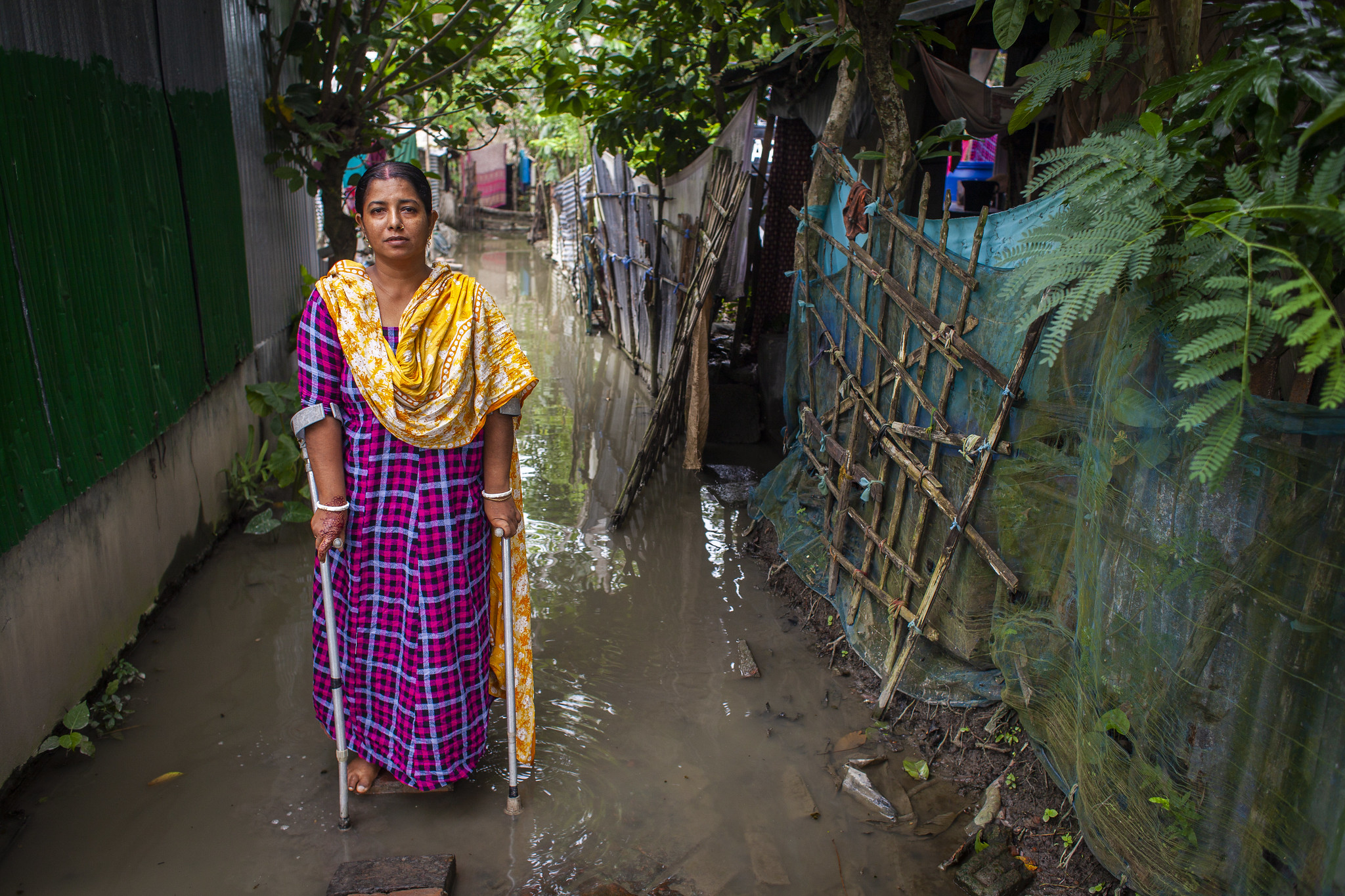The Lasting Impact of Cyclone Amphan in Bangladesh

Cyclone Amphan, the first super cyclone in the Bay of Bengal in the 21st century, struck in mid-2020, causing substantial displacement in Bangladesh, India, and other countries. Escalating climate-related disasters annually displace millions, particularly in a climate-vulnerable nation like Bangladesh. We undertook a small study in 2020-2021 on the lasting impact of the cyclone, which has recently been published in the book, Climate Justice in the Majority World: Vulnerability, Resistance, and Diverse Knowledges, part of the Routledge Studies in Climate Change Research book series.
Post-disaster, major humanitarian efforts led by governments and aid agencies attempt to address immediate needs. Bangladesh’s disaster relief coordination involves the Humanitarian Coordination Task Team (HCTT), overseen by the UN Resident Coordinator and the Ministry of Disaster Management and Relief. Yet, despite these efforts and local adaptations, poor governance and insufficient evidence-based policymaking pose challenges. Limited disaster relief funding is also an obstacle. Cyclone Amphan's HCTT response plan was only 26% funded, while the International Federation of Red Cross and Red Crescent Societies (IFRC) met 29.3% of their appeal. Donors primarily focus on immediate needs, allocating minimal funds to prevention and reconstruction. With inadequate funding, informal community action becomes a crucial yet underappreciated response avenue.
The chapter, ‘‘I was poor before, but Cyclone Amphan left me destitute': Disaster Displacement and Support in Bangladesh’, draws on data collected in Khulna District in southwestern Bangladesh between March-May 2021. The chapter examines vulnerability, migration, shelter experiences, and Cyclone Amphan's social impacts. Individuals face tough choices, balancing immediate risk and economic consequences. Vulnerability intersects with gender and age, increasing risks for women and older people. Support mechanisms, including informal ones like family and community aid, play essential roles post-disaster due to limited international and national assistance. The chapter highlights intersecting vulnerabilities and the importance of informal support in aiding displaced individuals.
UN Secretary-General António Guterres warns that the world is on a ‘fast track to climate disaster’ and ‘terrifying storms’, yet Bangladesh already grapples with climate change’s disastrous effects. Urgent support is needed for vulnerable communities facing the worst impacts and lacking mitigation capabilities. Recognising people's resilience and informal support systems is crucial. Cyclone Amphan worsened vulnerabilities, revealing the complexity of factors influencing individuals' susceptibility to extreme weather. Abandoning homes for shelters leads has long-term negative economic consequences. Post-disaster, life-saving aid dwindles, pushing reliance on family and community support. These informal aids, while essential, can also perpetuate challenges, debt, and economic marginalisation.
Comprehensive action is vital: enhanced notification systems, improved shelters, broader assistance, equitable aid delivery, resilient rebuilding, and long-term focus in research. Addressing longer-term challenges beyond immediate threats is paramount.
Neil J. W. Crawford is a Research Fellow in Climate Action in the School of Geography, University of Leeds. The research was made possible by a pump prime grant awarded to Neil J. W. Crawford by the Global Challenges Research Fund.
Main image: Sunita Rai, who lives in Khulna, was affected by Cyclone Amphan. Credit: UN Women/Fahad Kaizer. CC BY-NC-ND 4.0 DEED.
